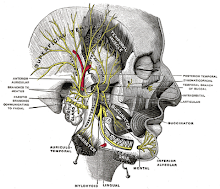Wednesday, 15 April 2009
Giacinto Scelsi - Hurqualia
GIACINTO SCELSI
"Giacinto Scelsi is one of the most extraordinary composers who have ever lived. A profound mystic, he saw the future of music as residing in a return to an atavistic state of a distant Indo-European pan-culture, and devised exact music to fulfil his ideals.
The music of Giacinto Scelsi is perhaps best described as being that of a spiritual Edgar Varese. This is merely to serve to depict a kind of sound-picture of the basic energy of Scelsi’s works. It has the elemental quality of both Varese as well as that of Tibetan Buddhist orchestral music, and likewise the attention upon Sound in-and-of-itself, yet, through Scelsi’s innate spirituality and deep commitment to Far Eastern philosophy and spirituality, it transcends the realm of mere sound, touching an area of our being left largely untouched by all other music. His music is not for those of a nervous disposition nor for the faint-hearted. It is utterly naked, raw music and totally uncompromising. He considered that all composition since Pythagoras had been in error - that composing (putting together) was a mistake. Devising new music should consist in the analysis of one note and its overtones.
Scelsi began to create massive works based on one note. Earlier in the century the Austrian mystic, occultist, and founder of the Anthroposophical movement Rudolph Steiner had described how the content of one note and its overtone series (and its "undertone" series) could be enough in the future music to provide the raw material for a composition, but Scelsi went further, exploring the microtonal deviations from the chosen note.
Increasingly his works centred around the narrower examinations of the very nature of sound itself, bearing mystical titles, quite often coming from the Vedic tradition of India, and making increasing demands on the performer, in a manner normally only met with in much of extreme Romanticism or Expressionism. Yet with the mystic's rejection of self, this music is as far from expressionism as can be".
The impact caused by the late discovery of his works was described by Belgian musicologist Harry Halbreich saying:
"A whole chapter of recent musical history must be rewritten: the second half of this century is now unthinkable without Scelsi ... He has inaugurated a completely new way of making music, hitherto unknown in the West. In the early fifties, there were few alternatives to serialism's strait jacket that did not lead back to the past. Then, toward 1960–61, came the shock of the discovery of Ligeti's Apparitions and Atmosphères. There were few people at the time who knew that Friedrich Cerha, in his orchestral cycle Spiegel, had already reached rather similar results, and nobody knew that there was a composer who had followed the same path even years before, and in a far more radical way: Giacinto Scelsi himself.”
Dutch musicologist Henk de Velde, alluding to Adorno speaking of Alban Berg, called Scelsi “the Master of the yet smaller transition,” to which Harry Halbreich added that “in fact, his music is only transition.”
Subscribe to:
Post Comments (Atom)

No comments:
Post a Comment